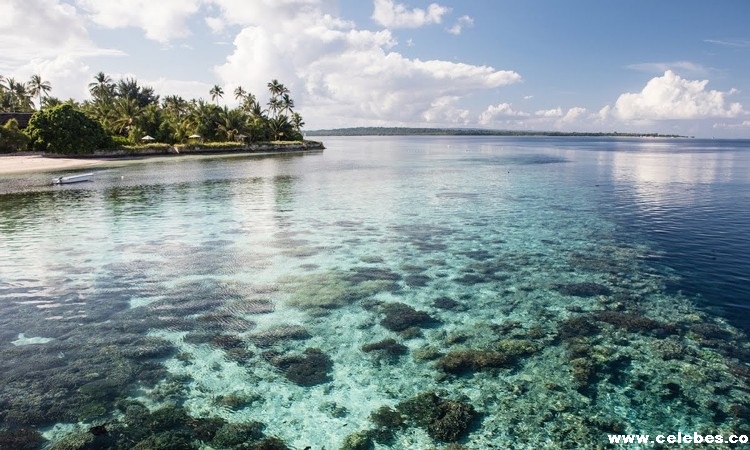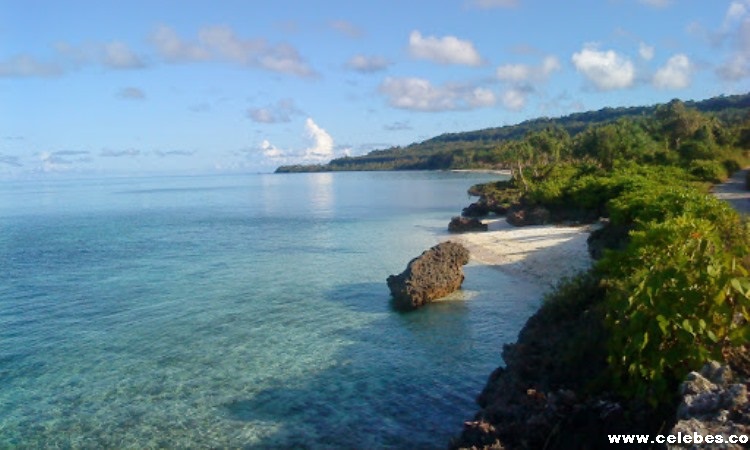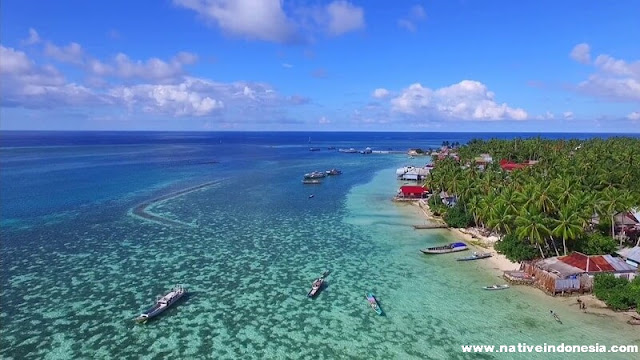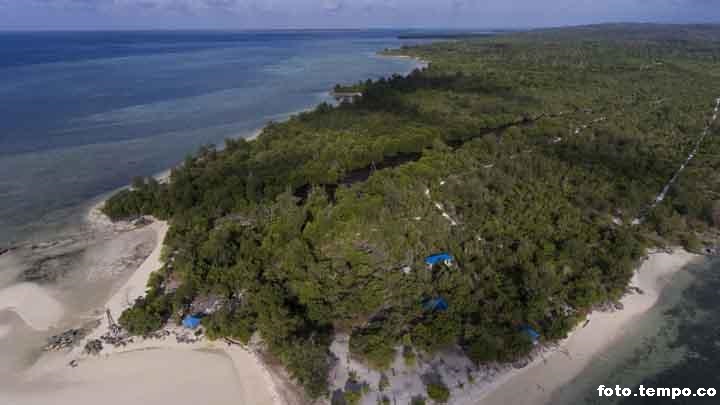Wakatobi, Paradise of Marine and Cultural Tourism in Southeast Sulawesi, Indonesia
Wakatobi is also one of the world-class diving sites. There are dozens of dive sites and dive tour operators ready to pamper tourists to enjoy an underwater paradise.
In Wakatobi, there are also Bajo tribes who spend almost all their lives on the sea. The uniqueness of their cultural customs has a tremendous attraction for local and foreign tourists.
The unique potential of marine and cultural tourism led Wakatobi to be designated as the 8th Earth Biosphere Reserve in Indonesia by UNESCO in 2012. The Wakatobi Archipelago consists of four islands as follows.
Binongko Island
This island is very popularly referred to as the "Coral Island" because the majority of the land surface is made of coral. The island also lacks infrastructure. Nonetheless, the island offers a number of marine and historical tours.
There are a number of dive sites on Binongko Island, including Cowo Dive, Fish Wall, Cavern Wall, and Koko Reef.
However, there are also many locations or water areas prohibited from entering, including being prohibited from diving, because they are included in the area of kaombo local wisdom.
Land tours that attract attention include the panorama of Koncu Kapala Wali Peak, Palahidu Beach, Pasir Panjang Beach, Yoro Beach, Buku Beach, Wee Beach, and Belaa Beach.
In addition, there are a number of sacred sites on Binongko Island, including the Jmapu Grave, Taduna Fort, Sasi Adat Wali, Mbara-mbara Beach, Latuempo Beach, Latuempo Forest, Sampua Bueya Beach, Sampua Bueya Mangrove, Waode Goa Cave, Waode Goa Tomb, Lawa Koncu Patua Wali, La Simbou Mane Tomb, Lawa La Simbou Mane, Koncu Kapala Old Mosque, Baruga Koncu Kapala, Lawa Warido Mata, Lawa Watumbero, Lasikori Cave, Lawa Lapungga, Lapungga Forest, Lapungga Tua Bamboo Forest, Wa Jiro, Fatiwa Fort , Topa Raja, and Topa Surabi.
A number of locations that are considered sacred are a form of local wisdom of the Binongko community. The community also still upholds the local ancestral heritage because it is believed to be a relic of the Binongko Kingdom in the past.
Tomia Island
Tomia Island is a very popular tourist destination in Wakatobi. On this island there is also Maranggo Airport, which can be a landing site for small planes.
Unfortunately, this small airport does not yet serve regular national flight routes. In fact, if opened for regular flights, this airport has the potential to increase the number of tourists in Wakatobi.
The seven popular dive sites on the island are Roma Dive Spot, Marimabok Dive Spot, West “38” Fun Divespot, Aly Reef Dive Spot, Wakatobi Dive Spot, Table Coral Dive Spot, and Wreck Huntete Dive Spot.
Popular beach excursions on the island include Onemoba'a Beach, Lakota Beach, Huntete Beach, Hondue Beach, Soha Beach, and Waitii Beach.
In addition to the beach, Tomia Island has other historical objects, such as Rambi Randa Fort, Tomb of Ince Sulaiman, Suo-suo Fort, Patua Fort, and Onemay Old Mosque.
Kaledupa Island
Kaledupa Island has several dive points that tempt tourists. Some of the dive sites are Buoy 1, Buoy 2, Buoy 3, Buoy 4, Buoy 5, Bay Batfish, Inner Pinnacle, Outer Pinnacle, Ridge 1, Coral Garden, Aquarium, Blue Hole, North Wall 2, Sampela Buoy 1, Sampela Buoy 2, Kaledupa Buoy 2, and Kaledupa Double Spur.
Several small islands around Kaledupa Island are also exotic locations for diving. Hoga Island, one of the small islands on the northeastern side of Kaledupa Island, offers a diving spot often visited by domestic and foreign tourists.
Kaledupa Island also has several interesting beach destinations, including Sombano Beach, Peropa Beach, and Langgira Beach. Other tours that are quite popular on this island are Lake Sombano, Goa Alam Sangka'anukiye, and Goa Alam Derawa.
In addition, there are also several forts and tourist attractions of historical value, including the Togo Fort and the Old Mosque, La Donda Fort, the Tua Tomb (Imam Fada's Tomb), and the Kamali Palea Traditional House.
Wangi-Wangi Island
Wangi-Wangi Island, also known locally as Wanci Island, is the main gateway to Wakatobi National Park. The administrative center of Wakatobi Regency is also on this island.
There are several dive sites on Wangi-Wangi Island, namely Sombu, Kapota Ujung or Tanjung Kapota, Kapota Danau, Entrance or Wandoka Pinnacle, Muka Kampung Station, and Waha.
The Wakatobi Regency Tourism Office also recorded several interesting tourist objects, including Kaluku Beach, Moli'i Sahatu Beach, Matchmaking Beach, Melai One Beach, Waikesa Beach, Sousu Beach, and Waha Beach or Cemara Beach. Several interesting forest tours include Motika Protection Forest, Tindoi Protected Forest, and Liya Bahari and Liya Togo Mangrove Forests.
In addition, tourists can also enjoy water bathing tours in several caves. This bathing tour is classified as traditional, generally used by local children as a place to play.
Because it is relatively close to the shoreline, the water in this bath generally tastes salty like brackish water. These bath tours include Goa Kontamale Water, Goa Tee Kosapi Water, Tee Kuea Natural Bath, Water Goa Walobu, Wa Pia-pia, and Watu Tofengka.
The uniqueness of tourism in Wakatobi is an attraction for tourist "carriages" in the eastern part of Indonesia.
Tourism development in Wakatobi also has the potential to improve the welfare of the local community. However, the central government is still waiting for the role of the central government to build infrastructure and transportation facilities so that Wakatobi can become one of the main national tourism destinations.





